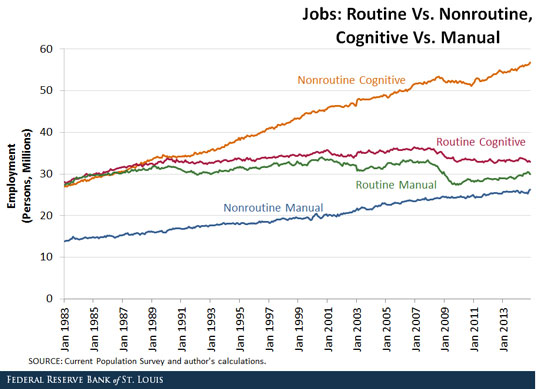Thanks for posting. most interesting.
I have thought that insisting on a $15 minimum wage would merely hasten the automation of restaurants and such. It looks like the looming changes could go much further, and perhaps come much sooner.
The author calls for something called "universal basic income" to sustain those who find their work now done by machines. I think, "how they gonna pay for that?". Previously, the answer has been to tax wages and salaries. This will not cut it when employment is shrinking dramatically. SS will be even less sustainable than the current projections, which count on a growing labor force and growing real wages. The future will be taxing "machine work", i.e, taxing capital. The new world could be a problem even for those done with work (this board), unless they can FIRE on UBI.
Even if the taxes aren't killer, how well can our consumer-centric economy function when a big chunk of the population is on UBI and cannot afford the latest i-something? Developing country residents looking for a middle-class lifestyle building stuff or providing services for the developed world could go straight from subsistence agriculture poverty to UBI poverty.



